How much do solar panels cost? And are they worth it?
We break down how much solar panels currently cost and evaluate whether they're worth investing in

Katie Sims
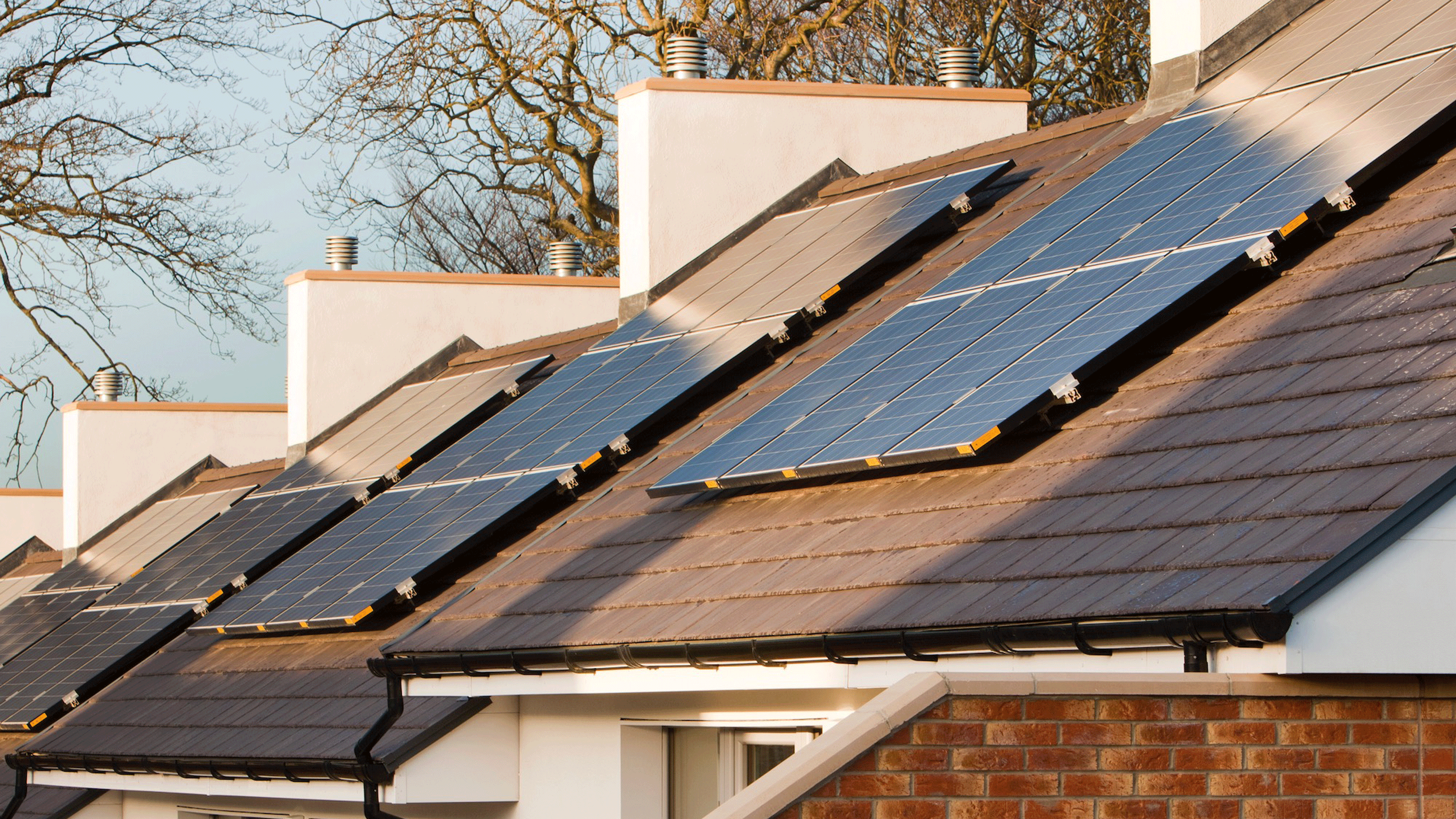
Sign up to our newsletter for style inspiration, real homes, project and garden advice and shopping know-how
You are now subscribed
Your newsletter sign-up was successful
If you're thinking of joining the solar energy movement, there's probably one thing making you stall: solar panels cost. Sure, we all know that installing solar panels saves energy and money in the long run, but how much actually is the initial investment, and is it worth it?
Solar panels are definitely here to stay. We've seen them cropping up on roofs for many years now, as more and more homeowners make the decision to switch to solar energy, usually with a dual motivation of saving money and reducing their home's carbon footprint.
And the good news is that solar panels cost are now much lower than what they once were. Previously the reserve of a very small minority, solar energy is becoming more widespread across the nation, largely due to a nice dip in the cost of purchasing and installing them.
'The cost of solar panels has come down significantly over recent years, making them a viable option for many people in the UK who are looking to reduce their carbon footprint and their energy bills,' says Ben Dhesi, Creator of energy-saving app HUGO. 'In fact, with the right system design and installation costs taken into account, it is now possible to install enough solar panels to power an entire home at a relatively low cost.'
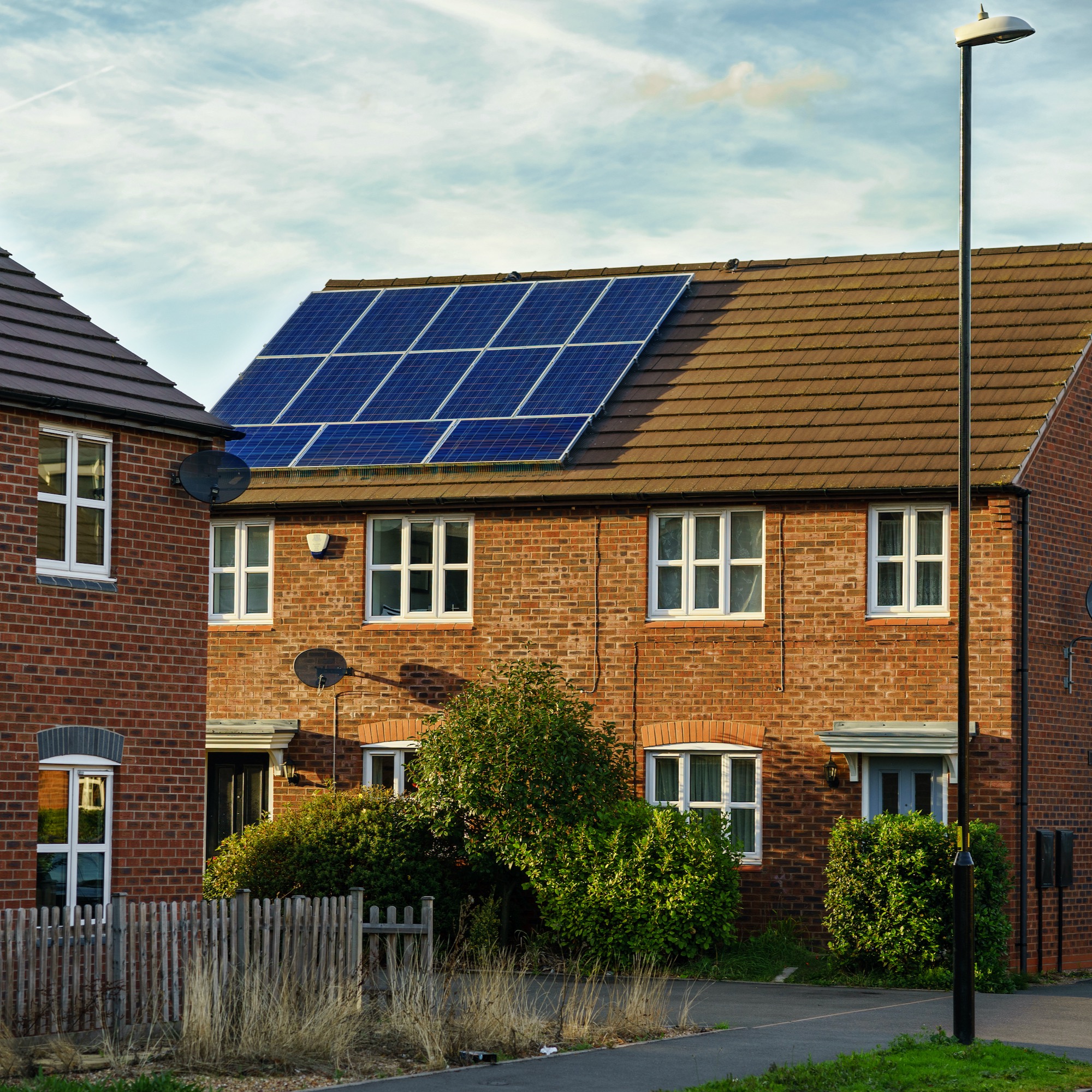
Get a quote to install solar panels on your home from The Eco Experts
Fill out the form to get a free quote for solar energy solutions for your home. Whether you want to cut your carbon footprint, save money on your bills – or both – The Eco Experts can help you find the right products for your home.
How much do solar panels cost?
To really get into the nitty gritty of solar panel costs, we break down how much money is required to incorporate this renewable source of energy into our homes. Our guide will tell you everything you need to know about buying and installing solar panels, plus how much money you can save and potential earnings from solar energy.
It's worth also checking if you need planning permission to install solar panels on your home, as if you do, you'll need to factor in those costs too.
Why have solar panel costs changed?
If you're coming to this guide now, having considered solar panels before, know that they're currently priced lower than they have been in the past. In fact since they took off at scale back in 2010 the price has dropped by a massive 70 per cent. We're referring to the upfront cost of the panels and their installation.
Sign up to our newsletter for style inspiration, real homes, project and garden advice and shopping know-how
There were previously government grants for solar panels. This has since largely ended with just a few remaining. The idea was that they installed and supplied your panels and you got your electricity bills paid for. They took the profits from any excess electricity sold back to the grid – usually with a 20-year contract.
The difference now, with government incentives like the Smart Export Guarantee (SEG), is that you can cover the cost up front. That means you stand to keep any profits from selling your energy produced back to the grid. This is now more possible than ever since, as mentioned, the prices of panels are at a low. And you could stand to make money in the future.
- What would have cost you £15,000 back in 2010 will now set you back just £6,000. A big difference that may put solar panel ownership within reach of many that could not afford it before.
- Take into account that on average a £5,940 setup will save you £339 per year. But let's get more specific.
How much do solar panels cost to purchase?
When looking at solar panels cost, the first thing to consider is the cost of the panels themselves. Solar panels tend to range in price from £150 - £400 each, depending on the size and efficiency rating of each panel and the level of energy you need.
To take a premium panel, let's look at the LG NeON R. This panel has an impressive 25 year warranty, and outputs up to 440W of electricity - nearly 4% more than the competition - thanks to a 21% efficiency. The other factor to check is what that efficiency is after the 25 year guarantee; ideally you want it to be above 85% being at least. In the case of the LG, this stands at an impressive 90%.
- The average UK household of three needs to produce 3,000kWh per year. That means the need for about 10 panels which requires about 20 square metres of roof space.
- The LG model costs £318 per panel, meaning 10 panels will cost £3,180. Remember this is the cost before installation.
How much does solar panel installation cost?
'Installation costs which vary greatly depending on roof size/type and other factors such as if you’re opting for panels or tiles, or solar panels that sit on top or are integrated into your roof,' explains Ben. 'Panels that sit on your roof are generally the cheapest option, but if you are already doing roof repairs or maintenance it may be worth looking at integrated models.'
You can either hire a professional to install your panels and purchase the elements separately, or pay for the panels and installation in one go from a company direct. Most companies that install solar panels cost don't advertise their prices in a breakdown, and instead provide a finalised price that includes the panels and installation cost. This is why it's important to check which panels they are going to supply so you know you're getting what you want. Ideally, you need a 25 year warranty and at least 20% power efficiency.
Based on the above LG solar panels, priced for 10, the average quote for these or similar installed is £5,520. That means you're looking at a solar panels installation cost of £2,340. But there will be other components, wiring and installation materials in that price so the labour cost is actually going to be under the £2,000 mark.
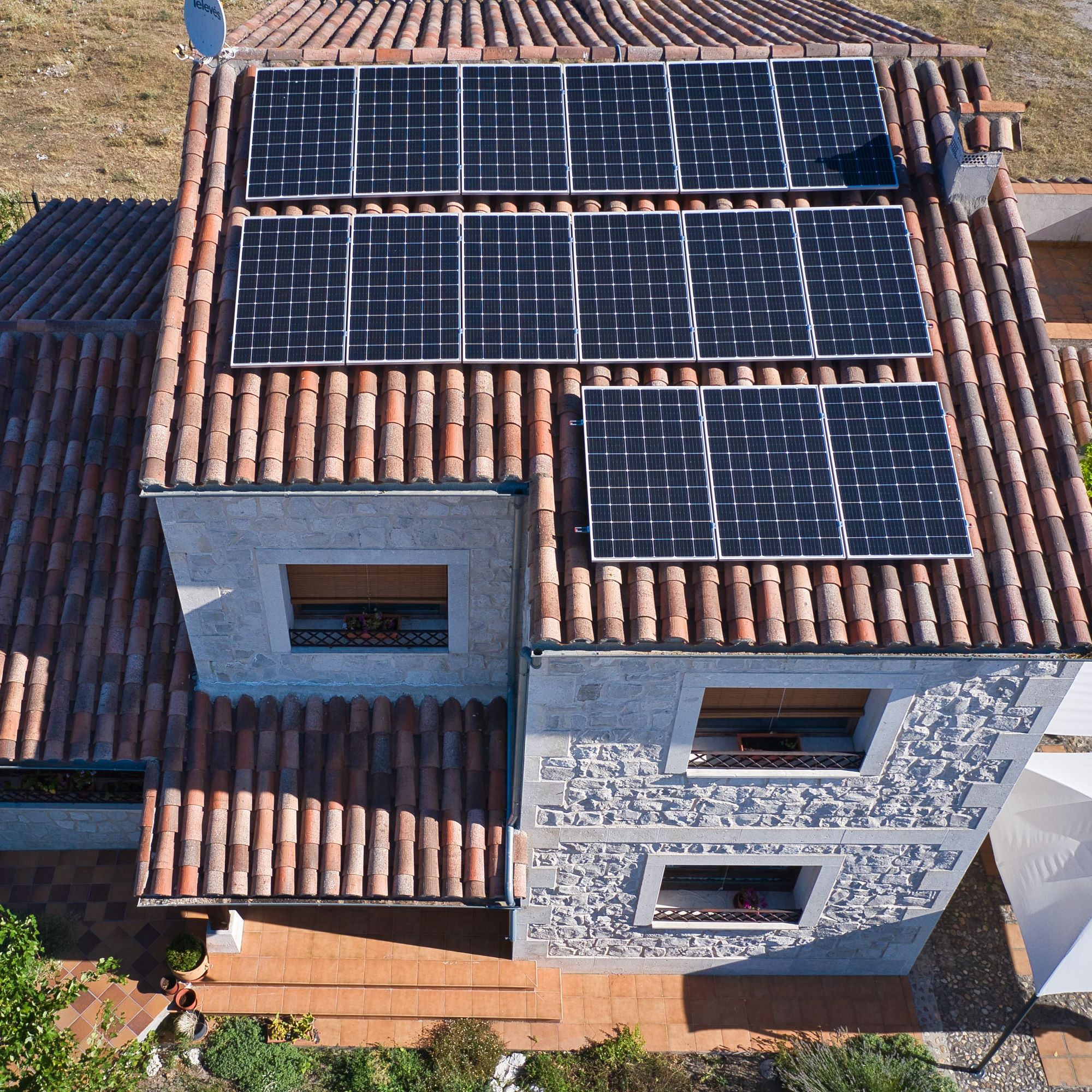
'Combining the cost of the panels and the installation, the average solar panel system will cost around £5,500', summarises Ben. 'But this is without the annual cost for maintenance which can add a couple of £100’s a year if you choose cheaper models that need more maintenance.'
'Always be open and really clear with your installers about what you want when you’re getting quotes', advises Nathan Hyatt-Mitchell, Heating Engineer, Rated People. 'Clarify the quotation and make sure that you’re happy with what will be spent and also if there’s after care of the solar panels. Some companies provide an after care service so it’s always best to check.'
Case studies of solar panel system costs
- Starting small, if you want a minimal install of a 1kW system, that needs around eight square metres of roof space, this solar panels cost will be around £1,840. That amount of power is super minimal though and is likely only to cover bills for a person living alone.
- Jump up to a couple, with a 2kW system and they're going to need around 12 square metres of roof space and a system that will cost about £3,680. Again this is likely to cover electricity bills but not produce too much more for the SEG payments.
- Go for a larger three bed family home and it's going to be close to the 4kW system you'll want if you plan to cover bills and make money back from the SEG. This will need a 20 square metre roof space and should cost around £6,000.
The location you have these installed likely won't change the solar panels cost too much but based on the amount of sun you get, it can affect how much you stand to save in bills and make in selling back electricity to the grid, so be aware if opting for solar power for sheds which may have to deal with some tree coverage. This is so varied it's best to go for a local free quote to find out the potential in the area you are.
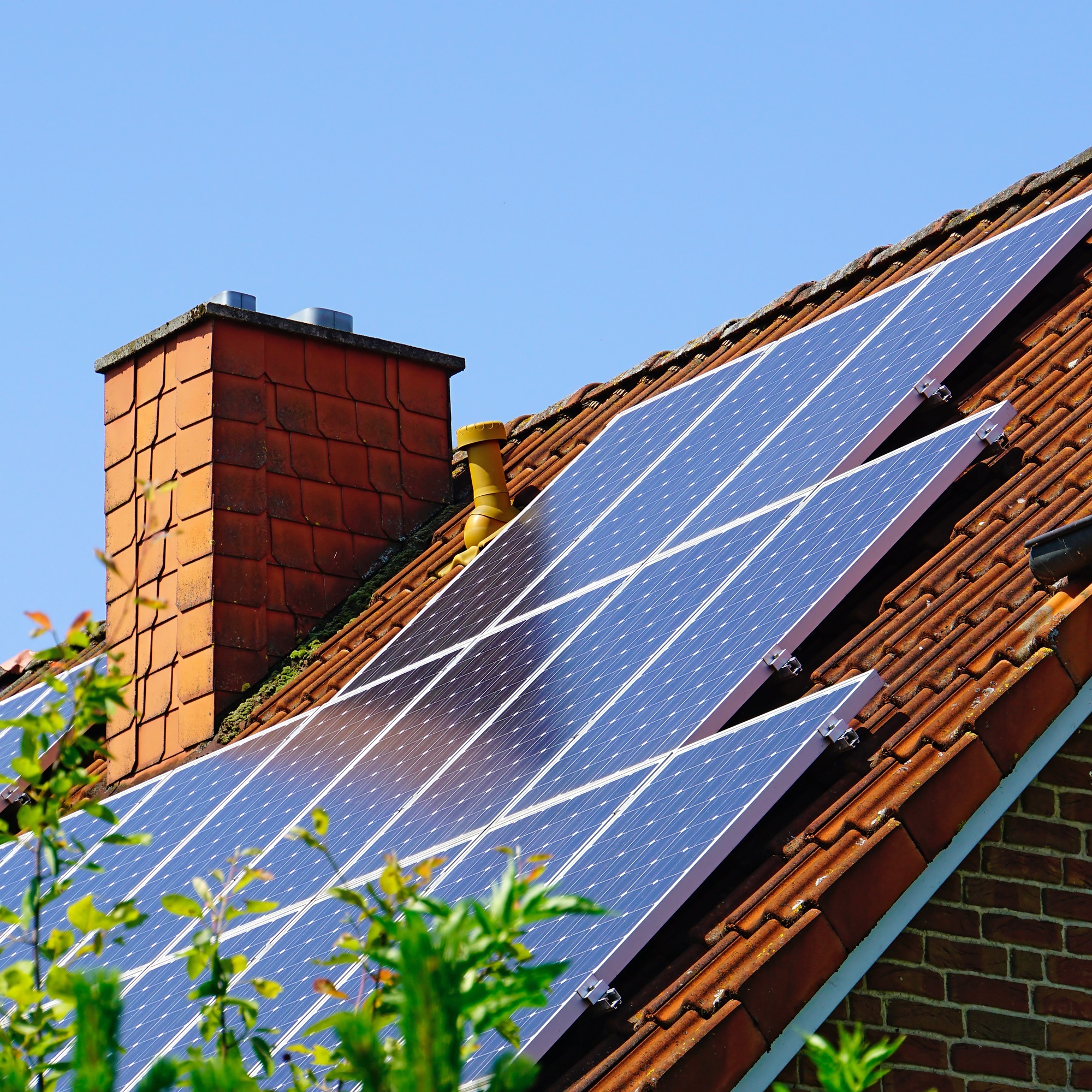
How much will I get paid for the electricity I generate with solar panels?
The (Smart Export Guarantee) SEG tariff, which is government subsidised, means you can make a decent amount of money from selling your energy back to the grid. Factor in that you're not dealing with electric bills as high as you would have otherwise and this can add up to an amount which means paying off the cost of panel installation quickly.
The price a supplier pays for your power varies across companies. Most will require you to have a battery system installed, so that could mean factoring in a greater cost up front. The best option, at time of publishing, is Social Energy which offers 20p per kilowatt hour (capped at 1,000kWh). Then it's Tesla at 12p/kWh and this goes all the way down to 1.5p from EDF Energy, but lots of companies offer around the 5p mark.
According to The Energy Saving Trust, the average household could make between £65 and £125 per year based on a low rate of just 3.99p per kWh.
Another factor to consider is the value you can add to your property. Josh Jackman from The Eco Experts told Ideal Home: 'Solar panels will typically make selling your home easier, not harder. The latest research shows that homes with solar panels typically sell for 4.1% more than those without – which currently means you pocket an extra £11,000.'
What can affect how much I get paid for my solar energy?
The main factor that affects what you're paid is how much energy you produce. Secondary to that is what you get paid for it. But of course how much energy you produce to sell isn't the same as the energy produced by your solar panels. You have to factor in how much you use too.
What you use is important as it can determine what you have left to sell back. So by using most of your power during the day, when there is solar, you stand to make more than at night – depending on if you have battery storage. As otherwise that power is lost and you'll be charged for what you need from the grid during those dark hours when you're not generating power, which can be seen as one of the solar power disadvantages.
As mentioned above the company that you sell to is also important as the rates of payment vary wildly from as low as 1.5p/kWh to 20p/kWh.
Of course the initial outlay affects all this too. Spend more and get the maximum number of solar panels and you're going to produce a lot more power than you need, meaning you have more to sell. But with the average charge for electricity greater than the amount paid to buy it back, you're still looking at a while to pay back the initial solar panels cost.
How long does it take to break even on the cost of my solar panels?
'The main issue with solar panels in the UK is the payback time, in other words how long it takes to get your upfront installation costs back against the reduction in your energy bills', says Gordon Clarke, Engineering Real Results.
It can take years to break even on the cost of your solar panels and their installation cost. If we take a typical 3.5kWh system, which will cost you about £4,800 to get fully installed and ready to go, it can take anywhere between nine and 21 years to pay it back.
This depends on a number of factors including where you live, how much electricity produced and when you're using it. Then, of course, there is the amount you're getting paid for the energy you sell back under the SEG.
- If you live in London you can save up to £440 on electricity bills and export as much as £125 on the SEG. At the cost of a £4,800 system you would have it repaid in just under nine years.
- Go further north to Stirling and that can be different. There you can save up to £412 on bills and earn up to £95 on the SEG. Based on the same solar panel installation cost this can be paid back in 10 years.
Both these examples use favourable examples with the biggest bill savings and the most SEG payments.
There's also the ongoing cost of maintenance to consider, which many people forget to consider when working out solar panels cost. 'It's worth factoring in how the inverter, which is one of the biggest components, needs to be replaced every five to 10 years', says Gordon.
Can I get help with the cost of solar panels?
The government once offered various schemes which allowed you to get solar panels either part funded or totally paid for. Given the drop in costs in recent years, it's now much more difficult to get grants for solar panels; there is the ECO4 scheme, but only people in receipt of benefits can apply. SEG gives money back for selling electricity but won't cover the up front costs of solar panels.
The other option is to take out a private loan to pay for the upfront costs through something called The Green Deal. Since the solar panels will help you save energy, money on electricity bills, and can make you money through the SEG offering, you can pay off that loan over the years. But do keep in mind this is a longer term money-making solution so any loan with a rate of interest can mean it will take you even longer to cover your costs.
Another option is to install yourself to save money on the upfront cost. But Josh Jackman of The Eco Experts doesn't recommend this. 'You’ll end up paying around £3,000 more on the basic material if you do it yourself, according to our calculations,' he says. 'And you won’t get any Smart Export Guarantee payments, assuming you’re not personally a Microgeneration Certification Scheme-accredited installer.'
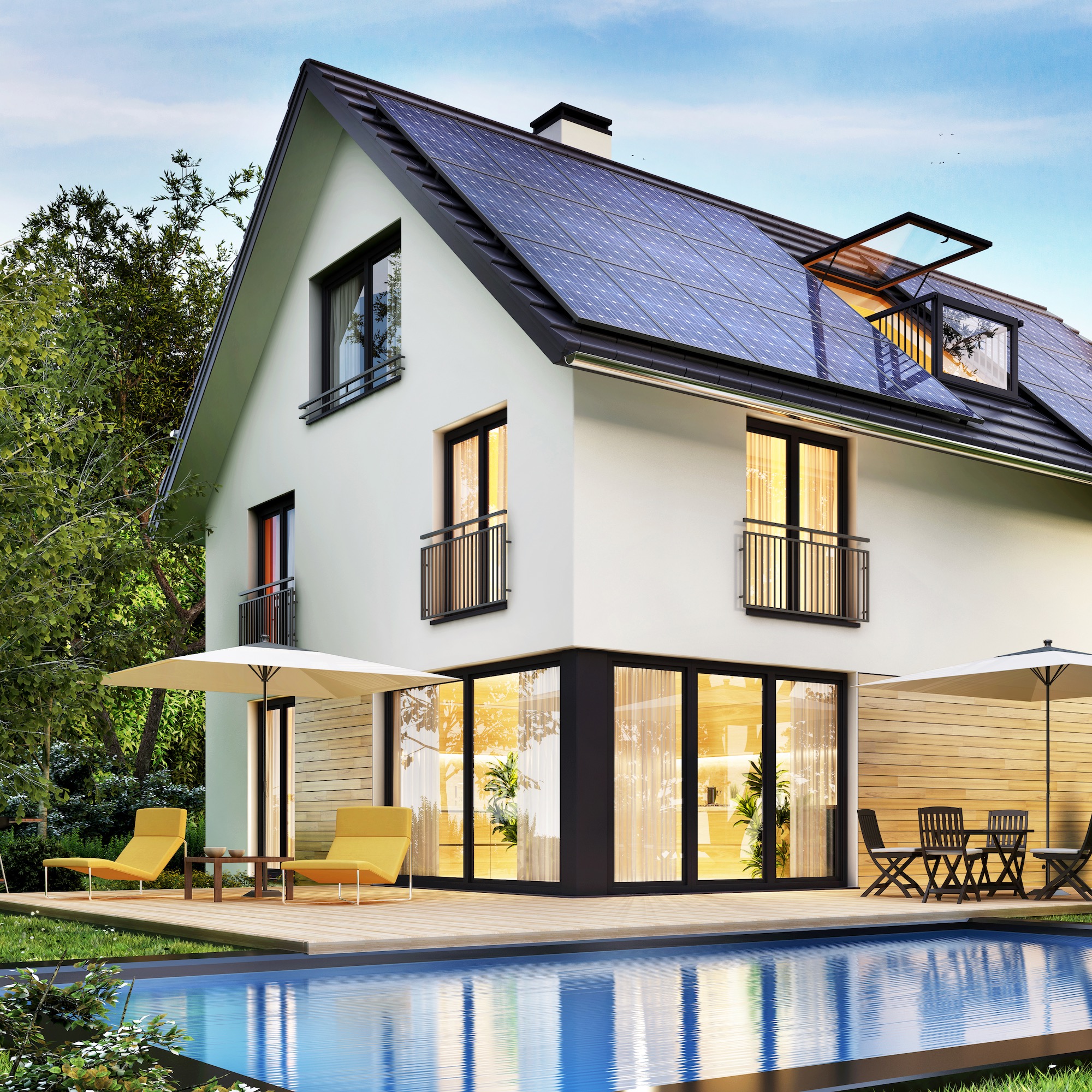
3 reasons to invest in solar panels
1. You become an eco-warrior
You are helping the environment by producing electricity from sustainable sources, which means you're helping long-term, globally.
2. You don't pay bills
You won't have to pay a penny on your electric bills anymore, so immediately factor that into prices. Given the need for energy bill help, this could become even more critical in the weeks and months to come.
3. You make money
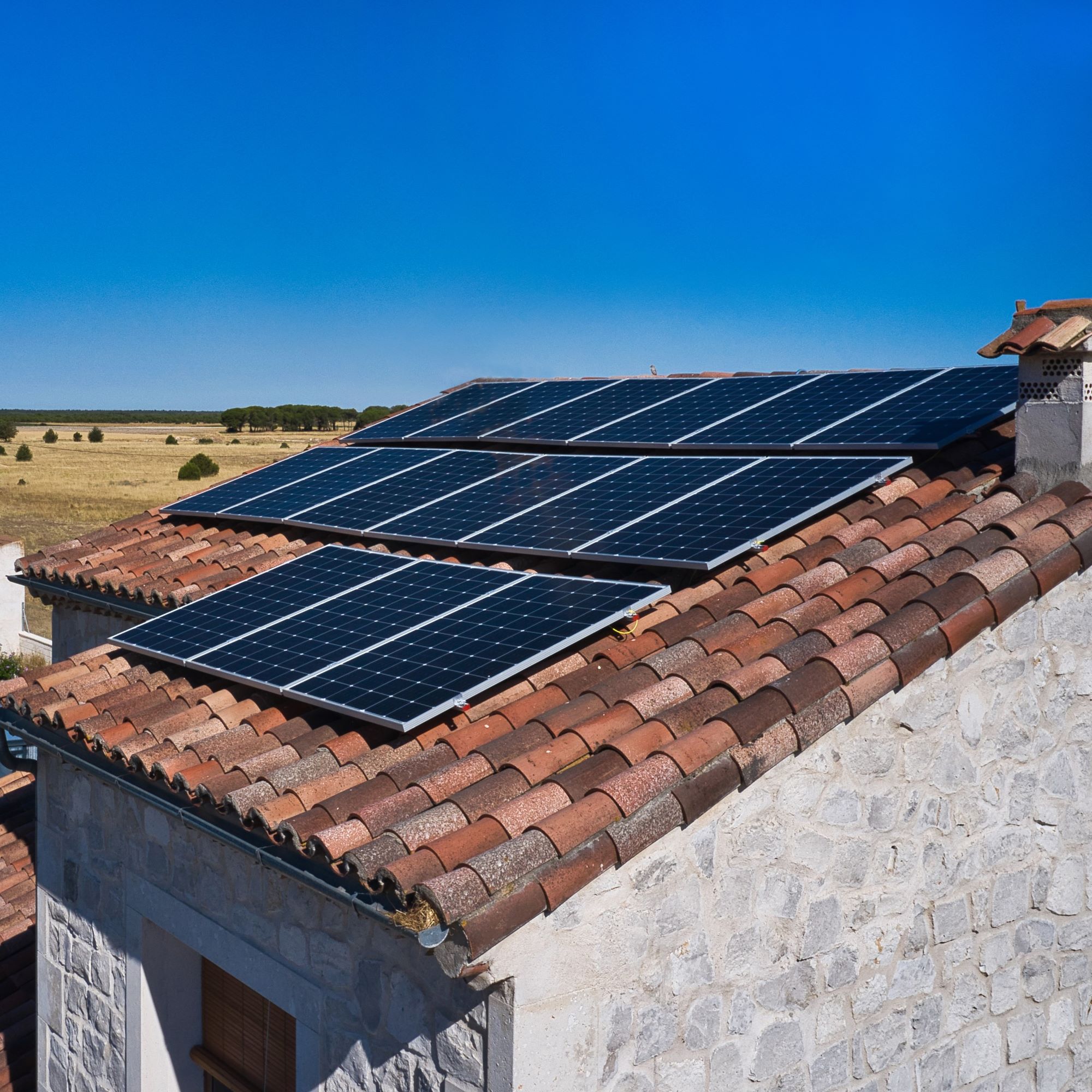
In the short term with the SEG you can start making money with your excess electricity generated by your solar panels. But as electricity powers more and the prices rise – and with electric cars set to expand rapidly – you could make even more money in the near future.
3 reasons why solar panels might not be for you
1. You need the cash
The upfront costs are still not small and the time it takes to pay them back, even when offsetting bills and making money selling power back, is near to a decade at least.
2. You can't stomach the maintenance
There's no escaping the fact that you need to clean solar panels and carry out some maintenance. You may find that you have more costs added on if anything goes wrong or if you need to pay a professional to look at your setup.
3. You might not need solar
If you use very little power anyway, then the cost of the panels and installation may not be worth it for the amount you pay on your bills.
FAQS
How many solar panels are needed to power a typical house?
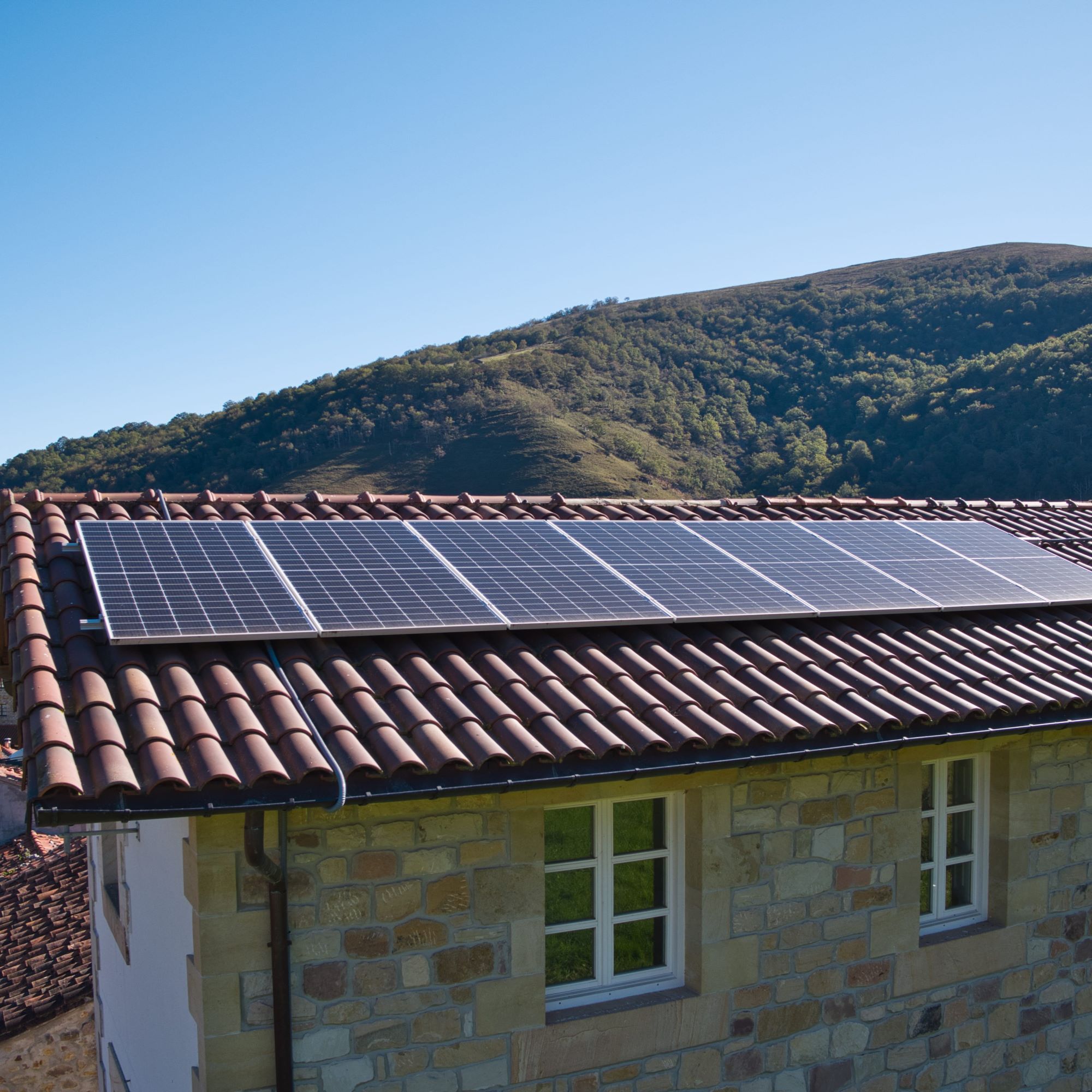
'As a rough guide, a standard one-bedroom house uses 6 panels,' says panel installer Nathan. 'If you have a 3-bed home, it will need 10 panels. For 5 bedrooms, you’ll need 14 panels for it to be worthwhile.'
These are average figures, but the number of bedrooms in the house doesn't have an exact conversion to a number of panels needed. 'It all completely depends on the area of the country the house is in, the amount of sunlight it gets, and the level of efficiency of the solar panels,' explain the experts at Otovo.
The biggest factor that will determine the number of panels needed is the energy usage in the house. You supplier will be able to discuss in detail how many panels your home needs exactly.
Is it worth getting solar panels in the UK?
If you play the long game, getting solar panels installed is well worth it. Producing your own electricity through solar power will see your energy bills drop significantly over time, which is good news considering the uncertainty about rising energy prices looming in the future.
'With solar panels, you generate your own electricity, so you’re reducing your electricity bill,' says Nathan. 'The amount you can save will always depend on things like the size of your system and your electricity use but in areas like London, you can save on average £100-£270, or in more rural areas, £90-230.'
'While the initial cost is hefty, solar panels can see some significant savings to your annual energy bills, with annual savings of between £235 - £610 depending on where you are located in the country,' agrees Ben, HUGO. 'Another bonus is that you can be paid for the excess electricity you don’t use, meaning you could earn between £80 - £110 a year by selling this excess energy back to the grid.'
So aside from cutting your bills down, you can also get earn money by returning excess electricity to the grid. How much companies will pay for your electricity does vary, and you need to account for how much energy you're using compared to producing, to be able to sell anything on.

As a veteran tech journalist of over two decades, Luke knows what makes a gadget tick but is also well aware of what you want to read about when doing your research. He has worked in this world for over 20 years and loves testing, reviewing and working with brands on new gadgets. Luke consults for many tech companies helping them create new gadgets. Expect concise words on everything from smart home tech and power tools to solar panels, cars, smartphones, speakers and plenty more besides.
- Katie SimsContributor
